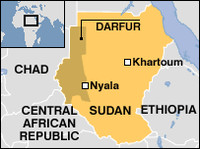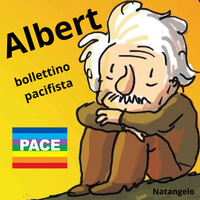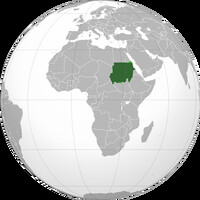Sudan: l'area di sicurezza dell' ONU nel Darfur non offre alcuna sicurezza
Darfur: U.N. ‘Safe Areas’ Offer No Real Security
U.N. Security Council Should Reject Plan That Could Undermine Return of Civilians
(New York, September 1, 2004) —

" Invece di offrire reale sicurezza ai civili, il piano proposto di " area di sicurezza" finira' per consolidare la pulizia etnica che ha avuto luogo nel Darfur. E' irrealistico pensare che l'esercito sudanese provvedera' alla sicurezza dei civili che furono cacciati fuori dalle proprie case da membri di quello stesso esercito"
Peter Takirambudde Executive Director, Human Rights Watch’s Africa division
On August 5, the U.N. Secretary-General’s special representative to Sudan, Jan Pronk, and the Sudanese government agreed to a Plan of Action that would establish “safe areas” for displaced and resident civilians in Darfur. However, this plan appears to be only a slightly revised version of the Sudanese government proposal in early July to create 18 “resettlement sites” for the more than 1.2 million displaced Darfurian civilians. Under the terms of the August 5 agreement, the Sudanese government “would identify parts of Darfur that can be made safe and secure within 30 days.” The plan also proposes that the Sudanese government “would provide secure routes to and between these areas” and use Sudanese security forces to secure the routes and areas.
“Instead of offering real security for civilians, the proposed ‘safe areas’ threaten to consolidate the ethnic cleansing that has taken place in Darfur,” said Peter Takirambudde, executive director for Human Rights Watch’s Africa division. “It’s unrealistic to think that Sudanese forces will provide security to civilians who were driven out of their homes by some of these very same forces.”
Human Rights Watch has found that the Sudanese government has made little or no progress in disarming the Janjaweed militias that it has supported or in reestablishing security in Darfur, despite a deadline of August 30 placed on Khartoum by the U.N. Security Council one month earlier. Militias continue to operate from bases and camps throughout Darfur in total impunity, sometimes in collaboration with government troops.
Sudanese forces and government-backed Janjaweed militias continue to attack civilians when they attempt to venture out of camps or settlements near the main towns. In recent weeks, scores of women and girls have been raped while attempting to collect firewood or move outside the periphery of the towns. Civilians have reportedly been killed by government forces and militias in attacks as recently as late-August.
A large proportion of the displaced civilian population has fled from rural areas of Darfur, where the Janjaweed continue to control many of the small towns and villages, either through their presence in the towns and villages and at checkpoints along the roads, or through intimidation and attacks from their bases outside the towns. Some of the militia bases have been set up in the same villages from which the militias and government forces drove out the original occupants.
Some of the initial sites proposed as “safe areas” for displaced civilians include the capitals of the three states in the Darfur region, along with nearby displaced settlements and villages. For instance, El Fashir, the capital of North Darfur, and nearby Abu Showk and Zam Zam displaced camps; Nyala, the capital of South Darfur, and nearby Kalma camp, and Geneina, the capital of West Darfur, are among the preliminary locations selected as safe areas.
“These safe areas could become a form of ‘human shield,’” Takirambudde said. “This would allow the government to secure zones around the major towns and confine a civilian population that it considers to be supporting the rebels.”
The Sudanese government has a well-known record of creating displaced camps known as “peace villages” in other parts of Sudan that have undermined, rather than ensured, civilian security. In southern Sudan and in the Nuba Mountains, for instance, these camps were typically located several kilometers outside the main towns. Particularly in the Nuba Mountains, they developed a reputation for being areas where soldiers and militia could rape displaced women and girls with impunity.
The insecurity prevailing around the earlier Sudanese “peace villages” greatly limited any movement of civilians into the rural areas to cultivate their fields or access markets, and likewise into larger towns for health care and other services, rendering them totally dependent on humanitarian aid. The camps became permanent resettlement sites in some instances.
“The majority of people in Darfur were self-sufficient before this conflict started last year,” Takirambudde said. “The only way they will ever return to self-sufficiency is if they can safely return to their villages and fields. The key to civilian security is controlling abusive government forces and militias.”
Human Rights Watch called on the members of the Security Council, international donor governments and U.N. agencies to object to the proposed “safe areas” and ensure that humanitarian assistance is not used to support forced resettlement or consolidation of ‘ethnic cleansing.’ Human Rights Watch also called on the Security Council to mandate the African Union, under Chapter VII of the U.N. Charter, to increase the number of troops on the ground in Darfur and to expand its mandate to include protection of civilians.
“An increased international presence on the ground throughout Darfur is the only way to ensure the protection of civilians in rural areas,” said Takirambudde. “The international community also needs to ensure that more than a million civilians in Darfur and neighboring Chad can safely and voluntarily return home.”
The proposed “safe areas” in the Darfur Plan of Action ignore key considerations for the genuine security of civilians. It is a bilateral agreement between the Sudanese government and the United Nations that lacks the consent of the rebel forces. The proposed locations of the areas, the lack of specificity regarding modalities of protection — beyond the use of Sudanese police that have already proven to be more likely to commit abuses than prevent them — and their open-ended duration risk that these proposed safe areas become permanent resettlement sites aimed at controlling the civilian population, rather than providing genuine security.
Articoli correlati
 Albert - bollettino pacifista del 28 settembre 2024
Albert - bollettino pacifista del 28 settembre 2024Per la pace, per la verità, per il disarmo
L’indignazione non basta per descrivere l'ultimo crimine di guerra in Libano. Una squadra di caccia israeliani ha sganciato bombe da una tonnellata su un quartiere densamente popolato di Beirut, lasciando sotto le macerie i civili innocenti.28 settembre 2024 - Redazione PeaceLink Bambini in fuga, un'intera generazione esclusa dalla scuola
Bambini in fuga, un'intera generazione esclusa dalla scuolaGuerra in Sudan: le testimonianze di missionari e organizzazioni sull'attuale drammatica situazione
Suor Ruth del Pilar, Padre Angelo Giorgetti e Vittorio Oppizzi raccontano le difficoltà quotidiane tra conflitto e insicurezza alimentare. Marco Impagliazzo di Sant'Egidio richiama l'Italia a rilanciare una conferenza internazionale per la pace.11 luglio 2024 - Redazione PeaceLink
Genocidi in Africa: “Per Non Dimenticare”
Articolo realizzato in collaborazione con Raffaele Masto, scrittore, giornalista e conduttore radiofonico italiano22 giugno 2015 - Laura Tussi Dal 14 agosto è stato rapito
Dal 14 agosto è stato rapitoLiberate Francesco
Mobilitiamo l'opinione pubblica per la liberazione di Francesco Azzarà, l'operatore umanitario di Emergency rapito in Sudan. Ci sono persone che decidono di dedicarsi al prossimo in maniera totale. Francesco è uno di questi22 ottobre 2011 - Associazione PeaceLink
Sociale.network